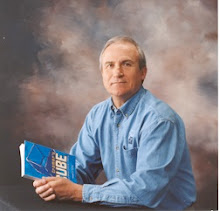Talent Management - Workforce Performance Solutions
Viewpoint
May 2006
By Vincent M. Cramer
I clearly remember the first time that I heard the phrase, “I don’t disagree.” A member of my team uttered those words during a decision-making session. My first reaction was to recoil from the phrase as if I were an English professor. It is a double negative and not grammatically acceptable. Because the person making the statement was in my organization, I felt compelled to bring the faux pas to his attention.
To my surprise, he told me that he intended to state his position that way and that he had no intention of rephrasing his remark into a declarative statement. He said that he didn’t agree with the statement made by another member of the team, so he could not say that he agrees with her, but he can say that he doesn’t disagree with her. I thought that his explanation amounted to a difference without a distinction.
I felt that he was parsing his words a little too finely for my liking. To my surprise, no one else in the group took issue with the phrase, leaving me isolated in my own world of grammatical precision.
Decision-Making That Leaks Oil
With the numbers stacked against me, I decided to take the small step over the linguistic chasm from positivity to double negativity. After all, double negatives cancel each other, resulting in a positive statement, making the phrases synonymous. So, what is the harm?
The harm is that corporations will experience poor performance, and it might be the first step on a slippery slope from which organizations begin their demise. That’s one noncommittal step for man; one giant leap for failure. I view the double negative as the proverbial canary in the mineshaft. It is a sign that portends danger, disaster and defeat.
As a leader, the three most important components of responsibility are to unify the team, make decisions and meet objectives. I always believed that the first and last are anchored by the middle. How can a leader achieve this team trifecta if the foundation of decisions is based on non-disagreement? Such decisions have two dangers. First, everyone on the team reaps a reward for an effective decision but neutralists have personal and professional deniability for a failed decision. In failure, a neutralist will remind the team that he or she did not agree with the decision, but in fact, didn’t disagree with the decision.
Fix The Leak
Forensics is a fascinating science as we have seen in the television series “CSI: Crime Scene Investigation.” Forensics is the use of science and investigative processes to uncover data and to establish facts. Not only do events leave evidence after the fact, there are usually clues that might have forecasted that an event would take place. There is a universal example of this point. Before an automobile engine seizes and dies, it might have leaked oil. If the leak and its cause were detected before its harmful effects were felt, serious consequences could have been avoided.
The leaking-oil metaphor in the organizational engine is poor communication and ineffective collaboration. Allowing neutralists to impact collaborative workgroups is analogous to a mechanic ignoring the shiny wet spot on the garage floor during an engine tune-up. Effective leadership and decision-making cannot allow neutralists to blow the engine!
Before you can do something correctly, you must first stop doing it incorrectly. If you are the leader of a group, or the manager of a team, it is critically important that everyone in your organization be a certifiable contributor. Do not let anyone hide behind slippery phrases such as “not disagreeing.” Ensure that everyone in the organization is fully engaged and contributing at every stage of collaboration and decision-making.
When the votes are counted, be sure that the total “yeas” and “nays” is equal to the number of people on the team. It is important that you “don’t disagree” with this recommendation.
Vincent M. Cramer is the author of Cramer’s Cube. He is also the founder of Winchester Consulting Group, an Organizational Development and Training company specializing in the confluence of collaboration, innovation and diversity. www.cramerscube.com
Tuesday
Subscribe to:
Post Comments (Atom)


No comments:
Post a Comment